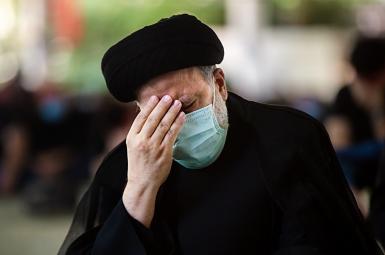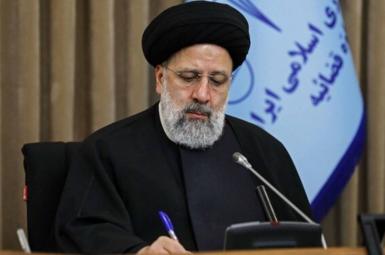
Iran In 2020 And The Outlook For 2021 - Crisis After Crisis
It was a horrible start to the year for the Islamic Republic. Dramatic events in January brought Iran dangerously close to the brink of an all-out war with the United States. The targeted killing of Iran's IRGC Qods Force Commander Qasem Soleimani in Baghdad on January 3 followed nearly two years of rising tensions between Tehran and Washington and escalated the crisis to a dangerous level.
The killing of its most well-known military figure was just a prelude to crisis after crisis the Islamic Republic had to face. Dwindling financial resources due to American sanctions, strengthening regional alliances between several Arab countries and Israel mainly aimed at Iran, an uncontrolled Covid-19 epidemic, loss of domestic credibility and the ever-present danger of unrest.
The killing of Soleimani was a defeat and an embarrassment for Iran. Soleimani was the symbol of Iran's long reach and its military ambition in the Middle East. Tehran relied on him to threaten the United States interests in the region. But on January 3 he was gone forever and ensuing events proved that Soleimani was an irreplaceable figure and his loss was nothing Iran could easily or quickly compensate.
Iran threatened a "hard revenge" that turned out to be nothing more than a missile attack on the Ain Al-Assad base in Iraq where US forces were based, albeit with an early warning to enable the Americans to evacuate the base or take cover before the strike.
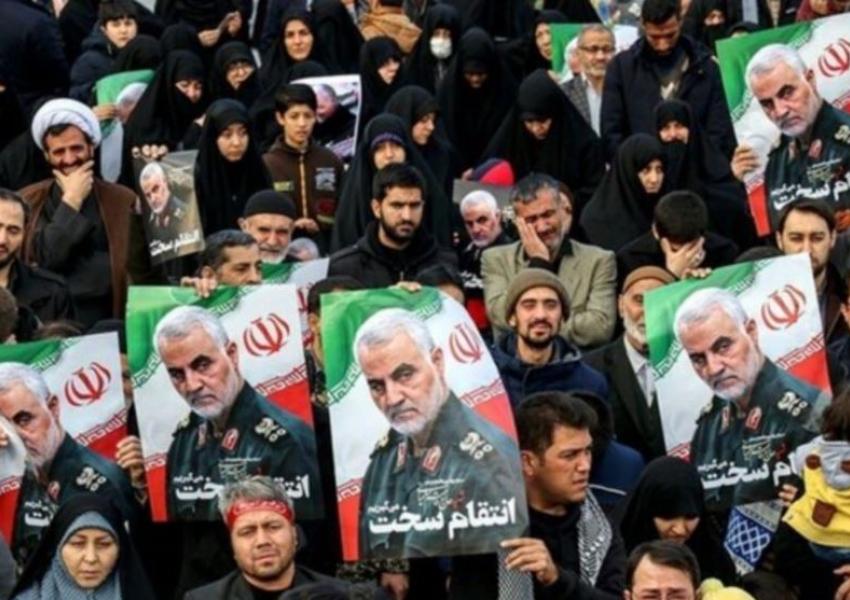
Qasem Soleimani's funeral in Mashhad, January 5, 2020
Hours later at dawn, the IRGC's air defense reportedly mistook a Ukrainian airliner taking off from the Tehran airport for an American cruise missile and downed it by firing two missiles, killing all the 176 people on board. One year after the tragedy, Iran has still not revealed the facts about the attack. In the meantime, more than 50 Iranians were killed during Soleimani's funeral.
At first the government tried to cover up and claimed that a technical problem led to the air disaster. Once it admitted that the IRGC had fired the missiles, the commander of IRGC's Aerospace Force claimed that ''human error" led to the loss of 176 lives. However, it was too late, and protests erupted in Tehran and elsewhere and the government had to face further embarrassment by attacking the protesters and arresting scores of them including diplomats that were on the scene to see a vigil at a university in Tehran.
While the drama was continuing, a major Parliamentary election was under way and many argued that the results were going to change the political landscape in Iran. The country's hardliners who were poised to win the Majles promised to unseat President Hassan Rouhani. Some even threatened to take him to court for his domestic and foreign policy failures. After they won, they tried twice to impeach Rouhani, but Supreme Leader Ali Khamenei intervened to stop the process at the last minute.
As politicians and officials were busy with the election campaign the coronavirus originating in China found a footstep in the religious city of Qom where 800 Chinese seminary students and several Chinese merchants are said to have carried the virus.
Fearing that the shadow of coronavirus might dissuade the people from going to the polls, the government denied rumors about the virus spreading in the country. But the government had already lost the public's trust by its denial of reports about the IRGC firing missiles at a civilian aircraft.

The early days of the coronavirus epidemic in Iran. Baghiatollah hospital, Tehran, February 27, 2020
While doctors and eyewitnesses said that Qom was the epicenter of the coronavirus contagion in Iran and demanded a quarantine, the government and the IRGC refused to do so in order to make sure that all eligible voters would go to the polls.
The parliamentary election in February proved to be yet another big embarrassment for the government with an unprecedented low turnout. In the capital Tehran, the turnout was around 20 percent. In a mid-term election a few months later, turnout at 11 constituencies were between 2 to 7 percent.
While the virus was quickly spreading from Qom to the other parts of the country, the government was in denial of the crisis. For politicians in Tehran, the question of who controlled the Parliament seemed more important than the safety of citizens.
Throughout the crisis, the media accused the Iranian government of concealing the true death toll and infection figures from the public. A visiting WHO official said that real figures are up to five times higher than official statistics. Later the Iranian parliament's research center and some health ministry officials said that the figures released by the government are 2.5 times less than actual fatality and infection numbers.
Before the fierce competition among Iranian conservatives at the Majles over the seat of the Speaker ended with a compromise that gave the post to former Tehran Mayor Mohammad Bagher Ghalibaf, COVID-19 had already spread to Gilan, Mazandaran and Isfahan provinces, killing thousands in a matter of a few months.
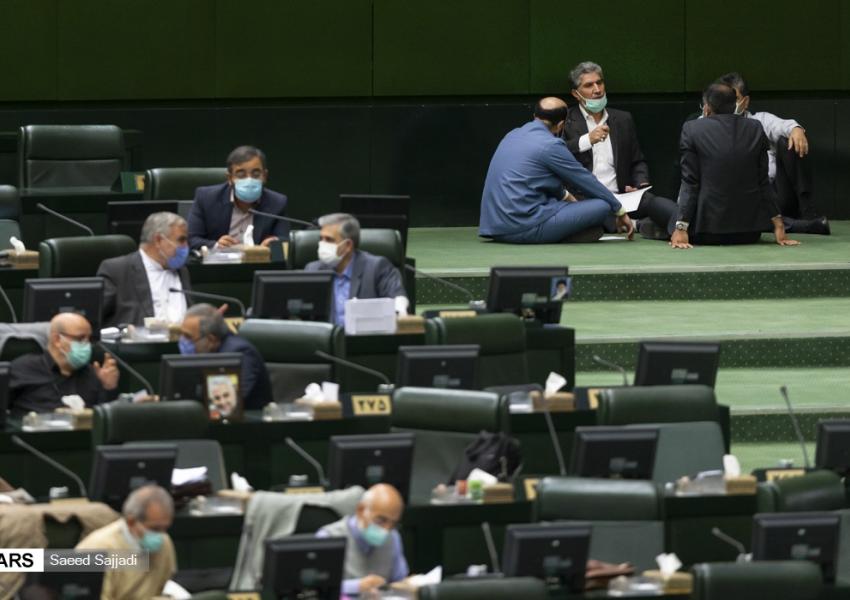
Hardliners dominate the new parliament elected in February 2020
The government of President Hassan Rouhani resisted calls for quarantine and disease control. It was only months later when it was revealed that Rouhani was fascinated by the herd immunity theory as a cheap solution for what turned out to be the century's biggest global public health problem.
For months Rouhani refused to shut down schools and workplaces. It was also revealed later that he was under pressure from hardliners at the Qom seminary and at the same time, feared that the government might not be able to extend financial support to those who lose their jobs because of lockdowns. In the meantime, while highlighting the damage to the economy, Rouhani and his aides made big promises about compensations, loans and grants that never materialized. At one point Rouhani even called on Supreme Leader Khamenei to assist the government by allocating funds to the disease relief out of the country's foreign currency reserves. Khamenei agreed, but at several points, Rouhani, his health minister and central bank governor complained that only one third of the one billion dollars requested was received the government.
All this was taking place against a backdrop of increasing sanctions and a continuing restriction on Iran's oil exports and international banking by the United States while the government was under immense pressure as a result of nearly 50 percent budget deficit. Rouhani tried to tackle the problem first by listing government assets in the stock market and then by coming up with a plan to sell oil bonds to the members of the public. The idea about selling shares of state-owned companies in the capital market worked to some extent before the "bubble" the media were talking about burst and people started to lose their investment in the market. More protests were part of the results of the measure.
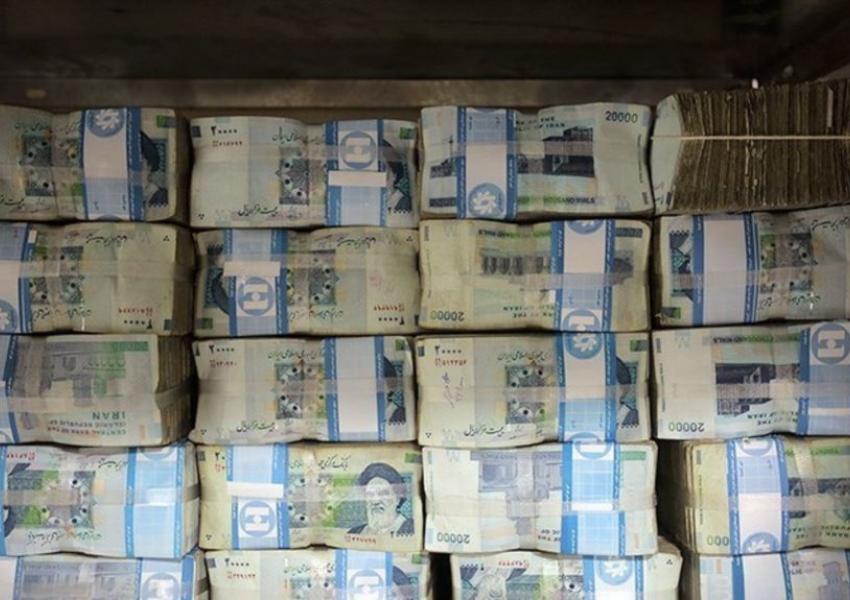
Iran just keeps printing money to pay for government expenditures as US sanctions slahed oil exports
The idea of selling oil to individuals and private companies who would export it – and no one said how – was doomed to failure as the heads of the Majles and Judiciary wrote a letter to Khamenei stating that unlike what Rouhani had said, he did not consult them, and that they opposed the idea. Rouhani was badly heartbroken and complained a couple of times but promised to find a solution. He didn't before the end of the year.
As the new Majles convened in mid-2020, the dynamics between the young and "revolutionary" parliament and the old, tired and "pragmatist" administration began to go out of control gradually. Rouhani refused to show up at the parliament for what he said was some advice by the COVID-19 Disease Control Task Force under his management. But his aides said that he does not like to go to the Majles because lawmakers had "insulted" him.
Rouhani complained that the Majles not only ignored the bills he presented but created all sorts of hurdles for his administration's operations. One of those hurdles was the harsh criticism the parliament voiced over Rouhani’s draft budget bill in December, and the second was a bill that called on the government to boost Uranium enrichment in contravention of the 2015 nuclear deal, if Iran did not get sanctions relief within two months.
The Majles knew that Rouhani was hoping to come to an agreement with the new administration in the United States, but this was nothing that could be accomplished withing two months. Rouhani and his aides' counter-attack included a statement that said the nuclear issue was none of parliament's business and the Majles should let diplomats do their job. This further enraged the hardliners.
As regards with the annual budget, the Majles said that Rouhani is planning to create problems for the next administration. Ghalibaf and many other lawmakers said that most figures in the bill are fictitious and they need to correct it to secure the people's interests. And when the lawmakers mentioned the parliament's supervisory role, Rouhani said this was non-constitutional and that government ministers are independent of the Majles and take their orders only from the resident.
Both of these problems remain unresolved by the end of the year, while a solution to both is essential for furthering the affairs of the state in both domestic politics and international relations.
None of these entanglements, including tensions with the United States, the coronavirus pandemic, the economic problems and the political deadlock inside the country, stopped the Islamic Republic authorities from exerting pressure on the people. Prosecution of opponents, executions of political prisoners and harassment of ordinary citizens for enforcing mundane regulations, such as the Islamic dress code intensified.
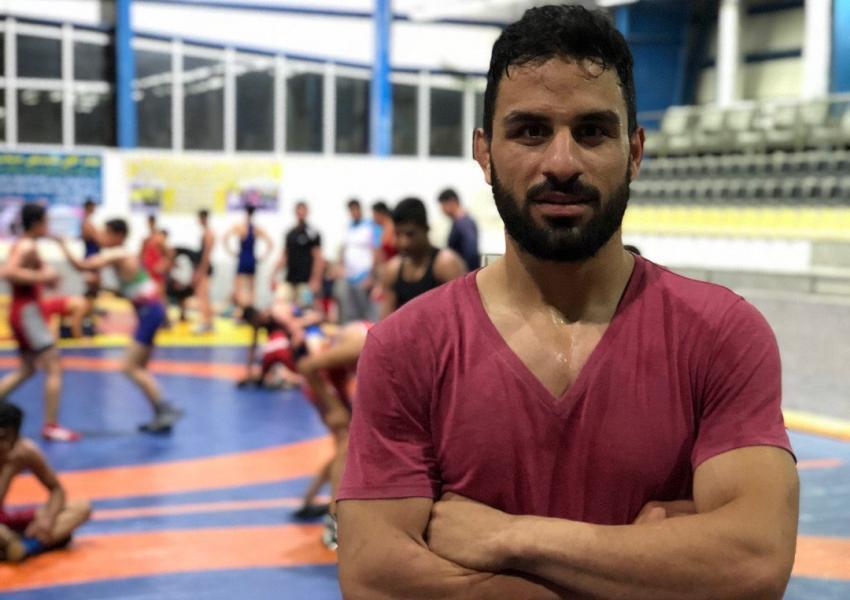
Navid Afkari a young wrestler arrested during protests was executed in September.
Toward the end of 2020, as COVID-19 vaccines found their way to many countries, Iran was still undecided between making or importing the vaccine. Aware of the huge profit margin involved in the vaccine business, pharmaceutical companies under the aegis of Khamenei's office advocated the idea of developing homegrown vaccines despite criticisms that Iran may not be technologically prepared to develop its own vaccine. Critics also say that even if it would be possible to make vaccines in Iran it is not likely to reach the people before the end of next summer.
On the other hand, the advocates of importing the vaccine who had been claiming all the time that the United States does not allow Iran to purchase vaccines, admitted in late December that Washington had cleared the way for Iran to pay for World Health Organization’s Covax procurement system for an initial supply of vaccines to inoculate eight million people, or ten percent of the population.
However, these are only the most important and urgent problems Iran is currently facing. The country's other problems including tensions with regional players such as Israel and Saudi Arabia, its regional ambitions and destabilizing operations in Iraq, Syria, Yemen and Afghanistan after the death of Soleimani, as well as its widespread economic problems still remain in place and could cause havoc and protests at any given moment.
As the year 2021 starts, Tehran is still not sure what is in store. Is it going to be a starting point for solving its problems with the United States? In the waning days of the Trump presidency there are indications such as military deployments in the Persian Gulf region that might lead to unpleasant incidents. Can Iran go ahead with its regional ambitions in the absence of a key player such as Soleimani whose loss has already led to the diminishing of Iran's manoeuvrability in Iraq, Syria, and elsewhere? Does it have the financial resources to do what it used to do in the past decade in the region?
Iran hopes that Joe Biden will return to the Joint Comprehensive Plan of Action or JCPOA in early 2021 and lift at least some of the sanctions. This would provide a financial scape hatch for the regime besieged by crisis after crisis and a breathing space for its cash-strapped regional proxies, such as the Lebanese Hezbollah.
Meanwhile, Iran may be looking at a more difficult scene inside the country in 2021. The combined pressure of sanctions and COIVID-19 might prompt unhappy masses to take to the streets as the regime seems to have anticipated by reinforcing its anti-riot forces and suppressive organizations in 2020.
Iranian military's ambition to win the upcoming Presidential election in June 2021 and the outlook of a possible need for leadership succession in a post-Khamenei situation are key landmarks in the near horizon that might bring the possibility of a major uprising closer.
Although nearly all Iran watchers foresee a lacklustre presidential election to usher a conservative figure into the presidential palace in Sa'dabad with yet another disappointing low turnout as a result of public disillusionment with the regime, the looming shadow of a tumultuous succession leaves little doubt about the winds of change in Iran. It could be a passing storm, or a sweeping tornado that leaves very little of what we see today as the Islamic Republic of Iran.


